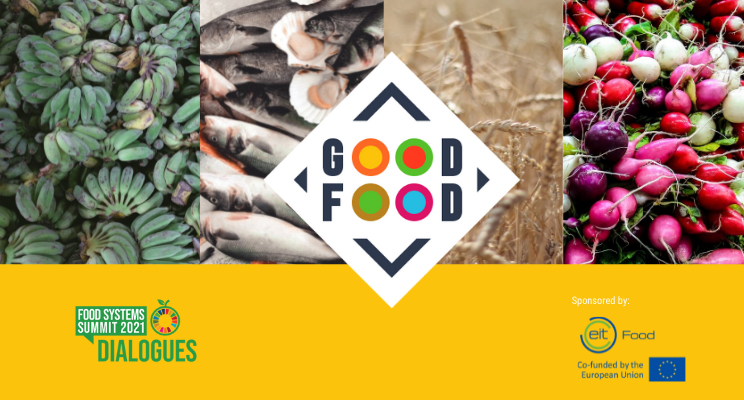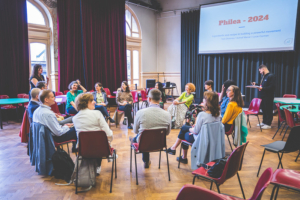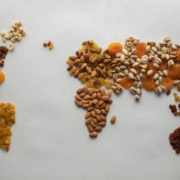How public capital can help small businesses make food systems greener and more inclusive – Good Food hub dialogues off to a fantastic start!

Latest posts
Share:
In 2021, the UN Food Systems Summit elevated small business voices to inform the world’s plans to make our food more nourishing, sustainable, equitable and resilient. In the same year, Wasafiri launched the Good Food Hub – a hub for small businesses that are doing just that.
Between February 16 and March 30, the Good Food Hub will host a series of dialogues with five UN Food Systems Summit coalitions, asking how they can each integrate and support the transformative potential of pioneering small businesses.
The first of these dialogues was between SMEs and the Public Development Banks Coalition. Wasafiri played a vital role in providing a platform for small food businesses to present their challenges directly to the financial institutions that, in large part, enable them to scale more quickly. At the same time, it is making it possible for these entities to cast a wider reach on food SME’s.
We heard from CEOs of public development banks in Rwanda, Senegal, and Mexico, as well as many pioneering SMEs, such as Siny Simba, CEO of Le Lionceau (Senegal), Javier Van Cauwelaert, CEO of SmartFish (Mexico), Kelvin Odoobo, CEO of Shambapro (Rwanda), and Julien Potron, CEO of Nadjibi (Senegal).
The dialogue highlighted that many public banks and small businesses share in a common endeavour to make our local and global food systems more equitable and sustainable. Yet, too often, conversations about financing can unhelpfully pitch the two at opposite sides of the table. Bankers and entrepreneurs have much to gain from working together on designing financial products that support improvements to our food systems.
Financial solutions are already underway
La Banque Agricole in Senegal is the second bank to ever be accredited by the Green Climate Fund promoting climate finance. Already, they are working with smallholder farmers to finance solar energy solutions, among others.
The Development Bank of Rwanda is developing a Green Bond and is also pivoting its approach to financing agricultural value chains holistically, not only to isolated farmers or end processors.
Lastly, FIRA (Mexico) has a loan guarantee to reduce the burden of high-interest rates for businesses achieving climate positive outcomes.
As small businesses are working every day to address local challenges, these national financial products generate critical opportunities to enable small business solutions to scale more quickly and reach more and more people.
Banks find it expensive to provide finance to individual small-scale producers, and such focus can fail to address financial bottlenecks further along the value chain. SMEs offer economies of scale and specialist knowledge for reaching small-scale producers.
By offering financial products to agri-food SMEs, public banks can economically strengthen small-scale producers and strengthen local supply chains. National policies need strengthening in parallel so that such businesses thrive commercially, and the sector is de-risked.
Banks traditionally view small businesses as risky investments; the rewards of innovation now justify the risk. There is a particular need among emerging markets to have financial products available at the scale-up stage of small businesses. And as the digital economy rapidly advances, digital innovations on both the agricultural value chain and the finance side are enabling much closer supply chain linkages, data, access to credit, and more.
Women and young entrepreneurs often lead the most pioneering food businesses but are not always treated with the equal credibility that they deserve. That’s both unjust and a missed opportunity.
As Javier so aptly stated at the end of the dialogue, we must put money in service of planet, not put the planet in service of money. Discussions like this demonstrate the power of public-private partnerships to develop targeted solutions that collectively drive towards a more green and inclusive future.
Read a little more about what the rest of the Good Food hub UNFSS coalition dialogues are about.
Are you making our food more nourishing, sustainable, equitable and resilient? Join the Good Food Hub today.











